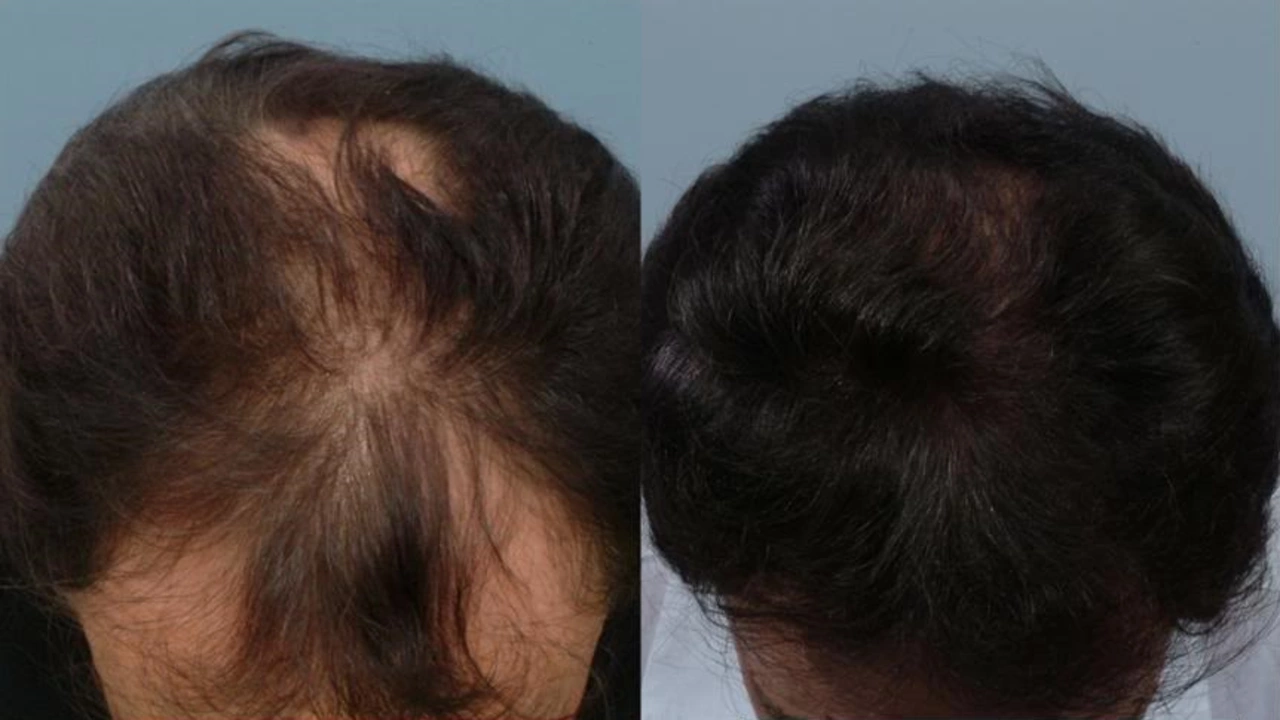Introduction to Venlafaxine and Hair Loss
As someone who has experienced hair loss due to various reasons, I understand the frustration and emotional turmoil it can cause. Recently, I came across a possible link between the antidepressant drug Venlafaxine and hair loss. In this article, I will be discussing the possible side effect of hair loss related to the use of Venlafaxine, and what you should know if you are taking this medication.
Venlafaxine is a commonly prescribed antidepressant drug that belongs to the serotonin-norepinephrine reuptake inhibitor (SNRI) class. It is used to treat conditions like major depressive disorder, generalized anxiety disorder, and panic disorder. Although it is an effective medication for many people, it is not without potential side effects, one of which may include hair loss.
Understanding the Connection: How Venlafaxine May Cause Hair Loss
Although the exact mechanism is not well understood, there are a few theories as to how Venlafaxine may contribute to hair loss. One theory is that the drug may affect the hair growth cycle, causing hair to fall out prematurely. Another possibility is that Venlafaxine may cause an immune system reaction that leads to hair loss.
It is also essential to note that stress and anxiety, the conditions for which Venlafaxine is commonly prescribed, can themselves contribute to hair loss. Therefore, it may be challenging to determine whether the hair loss is a side effect of the medication or a result of the underlying condition.
The Incidence of Hair Loss Among Venlafaxine Users
Hair loss has been reported as a rare side effect of Venlafaxine, with less than 1% of users experiencing this issue. However, it is essential to keep in mind that this percentage may not accurately represent the true incidence of hair loss among Venlafaxine users, as many cases may go unreported. Additionally, the severity of hair loss can vary among individuals, with some people experiencing mild thinning while others may lose more significant amounts of hair.
Factors That May Increase the Risk of Hair Loss
There are several factors that may increase the risk of hair loss among Venlafaxine users. Some of these factors include genetics, age, and the presence of other medical conditions. People with a family history of hair loss may be more susceptible to experiencing hair loss as a side effect of Venlafaxine. Additionally, older adults may be at a higher risk due to age-related changes in hair growth and overall health.
The presence of other medical conditions, such as thyroid disorders or iron deficiency, can also increase the risk of hair loss. It is essential to discuss any existing medical conditions with your healthcare provider to determine if they may be contributing to hair loss while taking Venlafaxine.
What to Do if You Suspect Venlafaxine-Related Hair Loss
If you are experiencing hair loss while taking Venlafaxine and suspect that it may be related to your medication, it is essential to discuss your concerns with your healthcare provider. They can help determine whether the hair loss is indeed a side effect of the drug or if there may be other underlying causes at play.
In some cases, your healthcare provider may recommend adjusting your medication dosage or switching to a different antidepressant to see if the hair loss improves. However, it is crucial not to make any changes to your medication regimen without first consulting with your healthcare provider, as doing so can lead to potentially harmful consequences.
Preventing and Managing Hair Loss While Taking Venlafaxine
While it may not be possible to prevent hair loss entirely while taking Venlafaxine, there are steps you can take to minimize its impact and promote healthier hair growth. These steps include maintaining a balanced diet, practicing proper hair care, and managing stress and anxiety levels.
A balanced diet that includes essential nutrients like iron, zinc, and biotin can help support healthy hair growth. Additionally, practicing proper hair care, such as avoiding tight hairstyles and minimizing heat styling, can help reduce hair breakage and promote growth. Finally, managing stress and anxiety through techniques like mindfulness, exercise, and therapy can help improve overall health and potentially minimize hair loss.
Alternative Treatments for Depression and Anxiety
If you are concerned about the potential side effect of hair loss while taking Venlafaxine, it may be worth exploring alternative treatments for depression and anxiety. Some alternative treatment options include cognitive-behavioral therapy (CBT), mindfulness-based therapies, and other medications that may have a lower risk of hair loss as a side effect.
It is essential to work closely with your healthcare provider to determine the most appropriate treatment plan for your specific needs and to weigh the potential benefits and risks of each treatment option.
Conclusion: Weighing the Pros and Cons of Venlafaxine Use
Ultimately, the decision to continue taking Venlafaxine or switch to a different treatment option should be based on a thorough discussion with your healthcare provider, considering factors such as the severity of your depression or anxiety and the impact of hair loss on your quality of life.
While hair loss can be a distressing side effect for some people, it is essential to remember that Venlafaxine can be an effective treatment for many individuals struggling with depression and anxiety. It is crucial to weigh the potential benefits of the medication against the possible risks and side effects to make the best decision for your mental health and overall well-being.


Write a comment